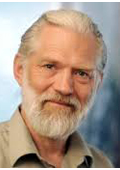
Professor and Director of REMESO. Schierup finished his mag.art. thesis in cultural and social anthropology at the Faculty of Arts, University of Aarhus in 1977 (nostrified as Swedish Ph.D. 1983) and his doctorate in sociology at Umeå University in 1987. He has held chairs in migration and ethnic Studies at the University Centre of Southern Jutland (SUC), Denmark, in sociology at Umeå University and in labour studies at the Swedish National Institute for Working Life (NIWL). He has since 1992 acted as the director of several major research programmes and research centres on migration and ethnic relations at Umeå University, SUC, NIWL and Linköping University. Carl-Ulrik Schierup has researched and taught on a wide range of subjects relating to international migration, ethnicity, identity and culture, racism, nationbuilding and nationalism, political economy, and labour studies. His major academic work focuses on political, economic and social development, migration and ethnic relations in former Yugoslavia’s and its successor states, on ethnic conflict, nationalism and social-reconstruction in post-communist states, and on issues of migration, nationality, ethnicity, multiculturalism, political participation, working life and social exclusion/inclusion in Scandinavia and the European Union. Currently Carl-Ulrik Schierups main research is oriented towards comparative studies on new trends in migration, globalisation and the precarization of labour related to regional integration processes, with the purpose of comparing the European Union with other major regional formations (NAFTA, EAFTA, SADC). Related to this he is engaged in the organisation of a series of international seminars, workshops and conferences aimed at extending REMESO:s international collaborative research network on issues of new migration, globalisation, informal and precarious labour. Through a long-term commitment to this research area REMESO will retrieve alternative pathways to the governance of global migration and engage researchers and stakeholders in critical dialogue on decent work and sustainable regional development.
